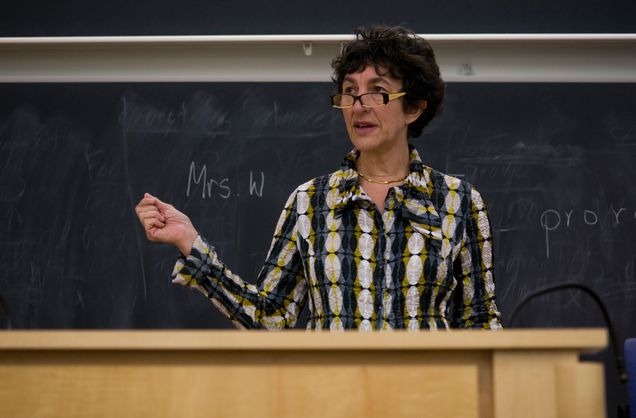Annual Distinguished Lecture, Professor Carol Sanger (Columbia Law School)
Narratives of Fetal Life and Death
Thursday, February 22, 2018
12:45 – 2:00pm
Boston University School of Law
765 Commonwealth Ave
Barristers Hall

The long-standing political campaign against legal abortion received a boost in the last year through coordinated efforts by the Trump administration in different areas of law: immigration, legislative limitation on abortion access (the “Fetal Pain Act”), funding restrictions, and changes in official vocabulary about abortion. One aspect of the campaign is to keep the fetus and issues of fetal personality at the forefront of public attention. In these respects, the federal government is playing a vigorous game of catch-up with states (particularly “red” states) that have over the last twenty years appealed to aspects of fetal personhood or characteristics of prenatal life as justifying increasingly restrictive regulations of women’s abortion decisions and on abortion providers. This Lecture examines both regulatory and cultural contributions that work to sustain—perhaps to naturalize—fetal personality and that contribute to keeping the cauldron of sentiment and activism against abortion on perpetual slow-boil. A central argument in this Lecture will be that throughout history, the fetus has been a political actor, although, by contrast to the present, rarely in the cause of antiabortion politics.
In our own times, particular narratives of fetal life and death are used to keep legal abortion at the ready when red-state politicians at both the state and federal levels hanker for a distracting fight. This Lecture will argue that although descriptions and depictions of fetuses smiling (or suffering) may serve to rally antiabortion troops, there are limits to the public endorsement of the fetus as a full-fledged person protected by law to the same degree as born persons. For example, personhood amendments on state ballots have all been defeated in recent years, including in such bright red states as Mississippi. Offering explanations for such developments, Professor Sanger will conclude that regarding the fetus as having attributes of personality socially is not the same as regarding it as a legal person politically and that narratives of fetal life and death are susceptible of more nuanced meanings.
About the Speaker
Carol Sanger is the Barbara Aronstein Black Professor of Law at Columbia Law School. She teaches courses on contracts, family law, and others focusing on reproduction, the legal profession, and law and gender. She is the Austin Wakeman Scott Visiting Professor of Law at Harvard Law School, Spring 2018.
Her recent scholarship, including her book, About Abortion: Terminating Pregnancy in the 21st Century, is centered on the regulation of abortion, the regulation of maternal conduct, surrogacy, and the law’s relation to culture. In addition to her numerous law journal publications, Sanger has edited Cases and Materials on Contracts, (with Garvin, Cohen, and Brooks), 2013 (8th edition).
Before joining the Law School faculty in 1996, Sanger taught at the University of Oregon from 1979 to 1981 and the Santa Clara University Law School from 1985 to 1994. Additionally, she served as a visiting scholar at the Institute for Research on Women and Gender at Stanford University from 1990 to 1991; visiting professor at Stanford Law School from 1991 to 1992; visiting professor at Columbia from 1994 to 1996; and a commercial law practitioner in San Francisco from 1976 to 1979.
During her tenure at Columbia, Sanger has spent several semesters as a Visiting Fellow and Visiting Professor of Law at the University of Oxford, as well as one year as a fellow in the Program on Law and Public Affairs at Princeton University from 2003 to 2004. Sanger received the Columbia University Presidential Award for Excellence in Teaching in 2001, and the 2007 Law School graduating class awarded Sanger its Willis L.M. Reese Teaching Prize for Excellence in Teaching.
In 2011, the Center for Reproductive Rights honored her with an Innovations in Scholarship Award, and, in 2013, she received the Green Bag Award for Exemplary Legal Writingfor the article, “‘The Birth of Death’: Stillborn Birth Certificates and the Problem for Law,” 100 California Law Review 269, 2012.
Sanger has a J.D. from the University of Michigan and a B.A. from Wellesley College.
About the Annual Distinguished Lecture
The Annual Distinguished Lecture was established in 1986 to bring outstanding legal scholars to Boston University School of Law to present lectures on important legal topics. Revised versions of the lectures are published in the Boston University Law Review.